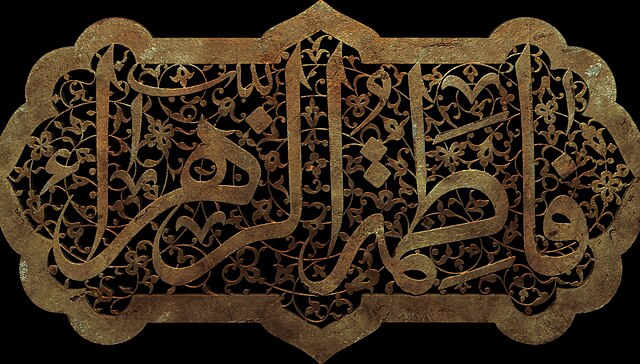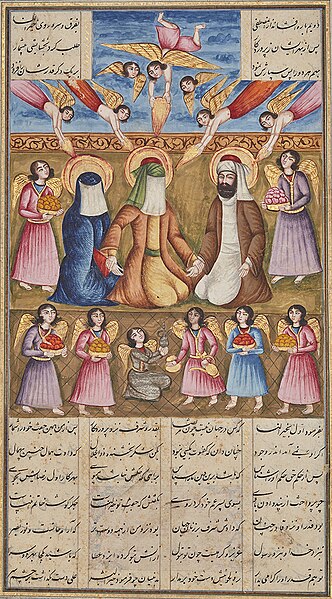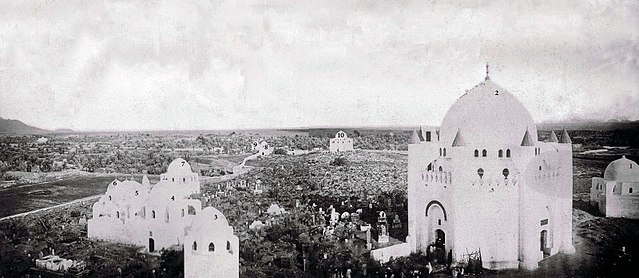Imamate in Twelver doctrine
Imāmah means "leadership" and is a concept in Twelver theology. The Twelve Imams are the spiritual and political successors to Muhammad, the Prophet of Islam, in the Twelver branch of Shia Islam. According to Twelver theology, the successors to Muhammad are infallible human beings, who rule justly over the community and maintain and interpret sharia and undertake the esoteric interpretation of the Quran. The words and deeds of Muhammad and the Imams guide the community. For this, the Imams must be free from error and sin and chosen by divine decree—nass—through the Prophet.
Imam Husayn Shrine in Karbala, Iraq, where the Battle of Karbala took place
Fatima bint Muhammad, commonly known as Fatima al-Zahra', was the daughter of the Islamic prophet Muhammad and his wife Khadija. Fatima's husband was Ali, the fourth of the Rashidun Caliphs and the first Shia Imam. Fatima's sons were Hasan and Husayn, the second and third Shia Imams, respectively. Fatima has been compared to Mary, mother of Jesus, especially in Shia Islam. Muhammad is said to have regarded her as the best of women and the dearest person to him. She is often viewed as an ultimate archetype for Muslim women and an example of compassion, generosity, and enduring suffering. It is through Fatima that Muhammad's family line has survived to this date. Her name and her epithets remain popular choices for Muslim girls.
Artwork with Fatima's name, reconstruction from a Safavid piece
The marriage of Ali and Fatima. Artwork created in Iran, c. 1850
Al-Baqi' cemetery is a probable site for Fatima's grave, depicted here before the demolition of its mausoleums by the Wahhabis in 1927.
Arabic calligraphy of the verse of purification





